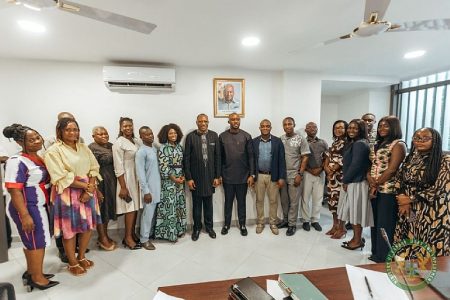The Sustainability Professionals Institute of Nigeria (SPIN) has embarked on a significant initiative to establish professional standards and best practices for sustainability across Africa. Recognizing the unique challenges and opportunities facing the continent, SPIN inaugurated a Scientific Induction Committee during a virtual event themed “Mainstreaming Sustainability in Africa: Professionalism, Standardisation, and Capabilities.” The event served as a platform for leading academics, industry experts, and sustainability practitioners to discuss and strategize on developing Africa-centric sustainability solutions, acknowledging the distinct environmental, social, and economic realities of the continent. The overarching aim is to empower Africa to define its own sustainability trajectory, moving beyond global frameworks and embracing locally relevant approaches.
Central to this initiative is the newly formed Scientific Induction Committee, composed of seven distinguished scholars and practitioners with diverse expertise in areas crucial to sustainable development. Their collective knowledge and experience will guide SPIN’s research agenda, policy recommendations, and capacity-building programs. The committee’s mandate is to advance professionalism within the sustainability sector, promote standardized practices, and enhance capacity building across Africa. During the virtual event, committee members emphasized the complex interplay of factors impacting sustainability in Africa and advocated for innovative solutions tailored to the continent’s specific context. This includes incorporating indigenous knowledge, promoting justice-centered policies, fostering multi-stakeholder collaborations, and establishing regulatory frameworks that prioritize equity and inclusion.
Professor Emmanuel Adegbite highlighted the pivotal role of robust corporate governance in ensuring sustainable business practices, while Professor Judy Muthuri stressed the importance of integrating indigenous knowledge and community-led approaches into sustainability strategies. These perspectives reflect the need to move beyond generic sustainability models and embrace locally rooted solutions. The committee underscored the importance of addressing historical inequities and power imbalances, as articulated by Professor Chukwumerije Okereke, who advocated for justice-centered policies. Professor Uwafiokun Idemudia, Dean of the College of Social and Applied Human Sciences at the University of Guelph, emphasized the necessity of collaborative efforts across various stakeholders to effectively mitigate environmental degradation. This multi-faceted approach recognizes that sustainable development requires concerted action from governments, businesses, civil society organizations, and local communities.
Furthermore, the committee emphasized the need to incorporate innovative approaches to sustainability, drawing upon expert insights from leading thought leaders. Dr. Natalie Beinisch, Co-founder of the Circular Economy Innovation Partnership, highlighted the potential of circular economy principles to minimize waste and maximize resource utilization. Professor Tazeeb Rajwani, Chaired Professor of International Business and Strategy at Surrey Business School, analyzed the geopolitical landscape and its influence on sustainable practices. He emphasized the critical need for African businesses to develop resilient strategies that are context-specific and adaptable to the dynamic global environment.
Building upon the insights shared by the committee members, SPIN outlined the committee’s roadmap for advancing sustainability in Africa. Ismail Omamegbe, SPIN’s Director of Advocacy and Stakeholder Engagement, expressed anticipation for the committee’s contributions to shaping SPIN’s research agenda, policy formulation, and capacity-building initiatives. The committee’s expertise will be instrumental in developing evidence-based recommendations and practical strategies to address the complex sustainability challenges facing the continent. This collaborative effort signifies SPIN’s commitment to fostering a vibrant and impactful sustainability ecosystem in Africa.
Finally, Mrs. Eunice Sampson, SPIN’s Director of Learning and Development, reaffirmed the committee’s vision of transforming sustainability in Africa through localized solutions and decolonized approaches. This includes dismantling existing power structures and knowledge hierarchies that have historically marginalized African perspectives and experiences in the global sustainability discourse. The focus remains on driving inclusive, data-driven growth through strong political commitments and cross-sector collaboration, ensuring that sustainability initiatives are grounded in evidence and generate tangible benefits for all stakeholders. By prioritizing local ownership and empowering African communities, SPIN aims to create a more equitable and sustainable future for the continent.














